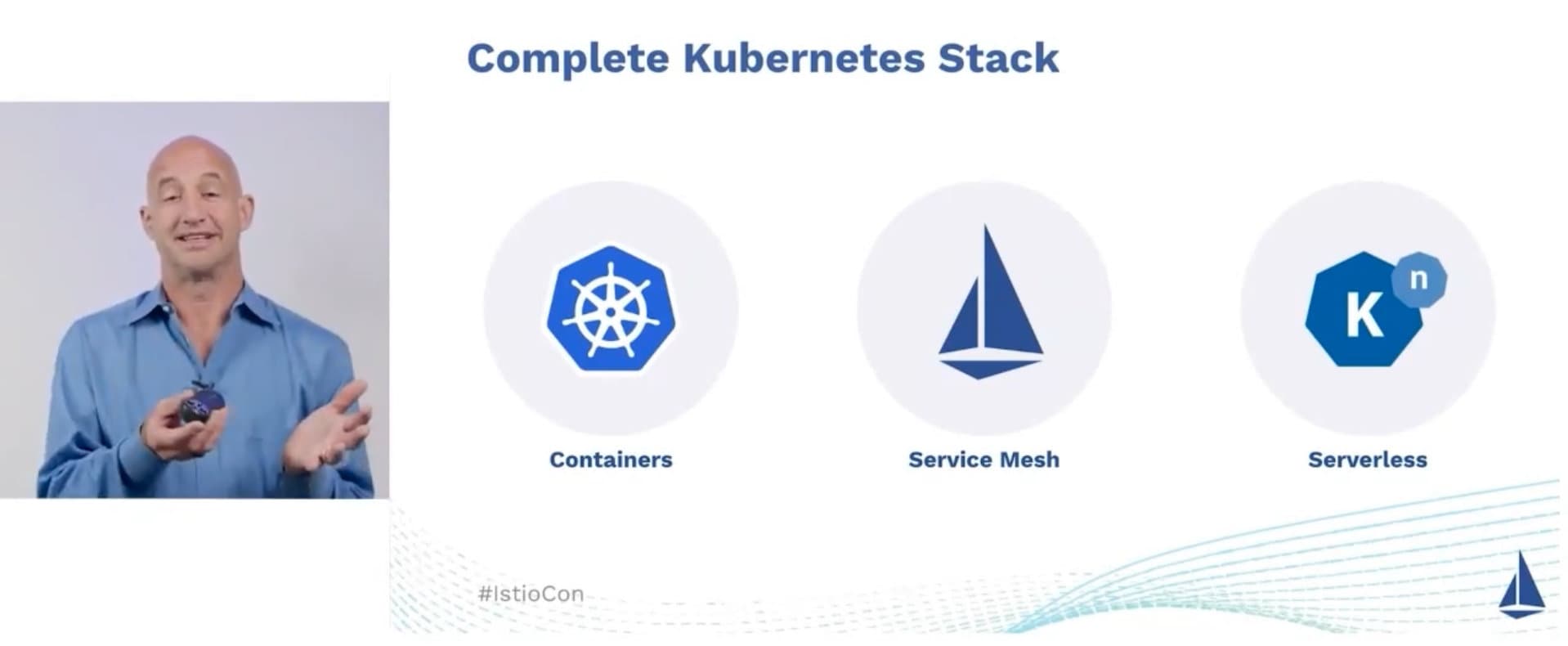foreword
This review article may be a bit late. I have been asked several times in the cloud native community China before when I can watch the video of IstioCon 2022 on station B (the IstioCon organizing committee has already uploaded the video to YouTube, But some people in China may not be able to access YouTube), just recently I and the conference staff asked for the video of the conference and uploaded it to station B.
Video playback and PPT
Most of the content has been uploaded to station B, except for the following three, some people have already uploaded it to station B in advance.

There are three videos of the crash
PPT can be downloaded directly by selecting the topic you are interested in through the link above.
Summarize
IstioCon 2022 is the second session this year. It will be held online from April 25th to 29th. As one of the organizers of the Chinese session of IstioCon, the author participated in the opening and round-table discussions of the Chinese session of this event. Istio’s Open Source Ecological Outlook”, the following are the forum guests.

Opening speech in Chinese: Istio’s Open Source Ecological Outlook Forum Guests
In the past two years, several representative open source projects have emerged in China around Istio, such as Aeraki open sourced by Tencent, Merbridge open sourced by DaoCloud, and Slime open sourced by NetEase. Based on the extensions developed by Istio, what I see are basically from China, which can be said to be Chinese characteristics.
The keywords of this IstioCon are as follows:
- zero trust
- Multi-cluster
- Proxyless
- eBPF
- Gateway
- Safety
At the same time, Google Cloud’s VP Eric Brewer announced a big news to donate Istio to CNCF. Once successful, the three open source projects Kubernetes, Istio, and Knative led by Google will become CNCF’s container orchestration, service mesh, Serverless, etc. The troika of the Kubernetes stack.

The Troika of the Kubernetes Technology Stack
What you should know about Istio
- Istio is only suitable for special scenarios and scales
- I won’t eat a fat man in one bite, I need to gradually improve one version after another
- Understanding Envoy is especially important for applying Istio
- Users don’t want to learn another set of CRDs, please consider adding a layer of abstraction on top of Istio
- Don’t underestimate the energy required for the Day 2 operation
Istio’s plans for 2022
The conference also announced what Istio will focus on in 2022.
Stability and redefining Istio’s API plane
- Push current features and APIs to stable
- Move API configuration from MeshConfig into data plane and make it stable
- Continue to help align Kubernetes API definitions with Istio APIs (Kubernetes Gateway API)
- Continue to enhance the Telemetry API: add support for logging with vendors such as OpenTelemetry, filter access logs, and customize the trace service name
Enhanced upgrades and troubleshooting
- Push revision tag based upgrades to stable
- Roll out Helm installations to beta
- Add more analyzers to
istioctland extend the current analyzers to include analyzers for environments other than Kubernetes clusters - Users want to use service meshes to troubleshoot services, not to troubleshoot service meshes
Enhanced scalability
- Wasm Plugin
- custom authorization
- Add standardized integration points to include custom CAs or gateways
Extending Istio usage scenarios
- Support IPv6 and Dual Stack Networking
- ARM support
- Extending proxyless Istio using gRPC
- Performance enhancements: incremental xDS, reduced sidecar latency
.
Security hardening
- As secure as possible by default
- Continue to improve the security best practice documentation
- push distroless mirroring
- Software BOM (Bill of Materials, List of Dependent Services)
- Add extra fuzzing
other enhancements
- Making Upgrades Easier with Automation: Make Istio’s upgrades work like any other upgrade, publish a reference implementation of upgrade automation
- Multi-scale and large-scale clusters
- For developers, we’ve incorporated weekly working group meetings into . For developers, we’ve combined weekly working group meetings, one in the US and one in Asia Pacific.
write at the end
I hope the day when Istio officially enters CNCF will come soon. I also hope to see more terminal case sharing from Istio in the community, and welcome everyone to join the cloud native community
In Zhonglai, we have a dedicated Istio discussion group.
This article is reprinted from https://jimmysong.io/blog/istiocon-2022-recap/
This site is for inclusion only, and the copyright belongs to the original author.